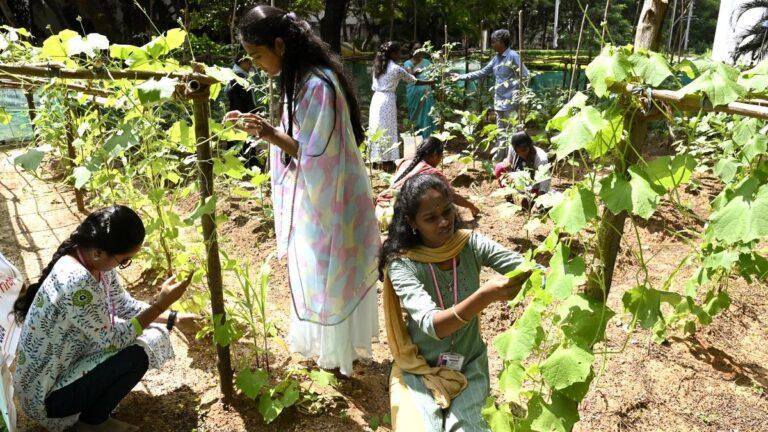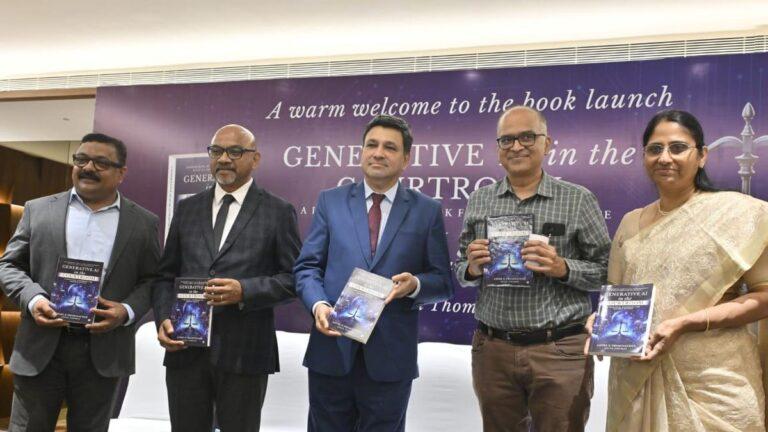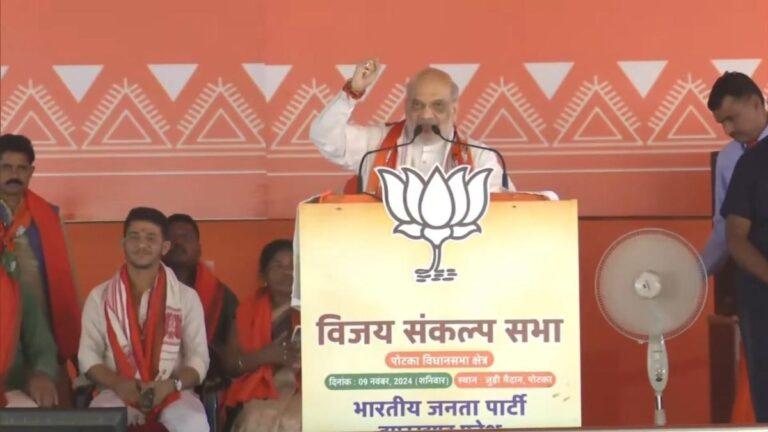
Students nurturing plants and creepers at the vegetable garden developed at Sri Padmavati Mahila Viswa Vidyalayam (SPMVV) campus in Tirupati.
| Photo Credit: K.V. Poornachandra Kumar
For the first time, several students pursuing higher education at Sri Venkateswara University (SVU) and Sri Padmavati Mahila Viswa Vidyalayam (SPMVV) have become first generation farmers, that too, organic farmers.
The two universities are currently in the process of established organic vegetable gardens at their respective premises. Welfare Organisation for Rural Development (WORD) extended their technical expertise and overall guidance in adopting natural farming methods, while another NGO Society for Human Rights and Social Development (SOCHURSOD) procured the seed, arranged labour and provided training to the students.
One cent of land each has been earmarked for the garden at SVU’s Botany department and SPMVV’s Godavari hostel block. Beds and trenches are formed alternately across the garden and ‘Ghana Jeevamruthan’, a mixture of cow dung, cow urine, jaggery and pulses powder, is applied to the soil. The native seed varieties of various vegetables are dipped in a similar substance called ‘Beejamrutham’ and planted.
Planting pattern
The planting pattern used is such that thirteen types of vegetables and seven varieties of greens are densely planted across the plot. Vegetables like brinjal, chilli, tomato and lady’s finger (red), roots like carrot, beetroot, and radish are planted in a scattered manner.
Bitter gourd, bottle gourd and ridge gourd are planted on the periphery so that the creepers are allowed to climb along the fence. Marigold (Banthipuvvu), which is known to prevent pests, is also planted randomly. A mix of neem seed extract and native soil is sprinkled to enhance growth, while yellow traps are installed here and there to tackle insects.
“The yield from this 20ft x 20ft plot is sufficient to feed a family of five to seven persons for four months,” says professor B. Hemavathi of SPMVV Department of Bioscience and Sericulture, who is coordinating the plot on behalf of the National Service Scheme (NSS) cell.
Green teams
Both institutes have formed ‘green teams’ of 21 members from their respective campuses, who are required to monitor the plot, showcase them to visitors, train fellow students and impart knowledge to the general public on the advantages of growing vegetables at their residential complexes, apartments and even roof tops.
WORD general secretary K. Gangadharam, who has been pursuing natural farming and training citizens for nearly three decades, invites agricultural entrepreneurs to replicate his model to provide chemical residue-free vegetables to the public.
Published – November 08, 2024 10:52 pm IST






















